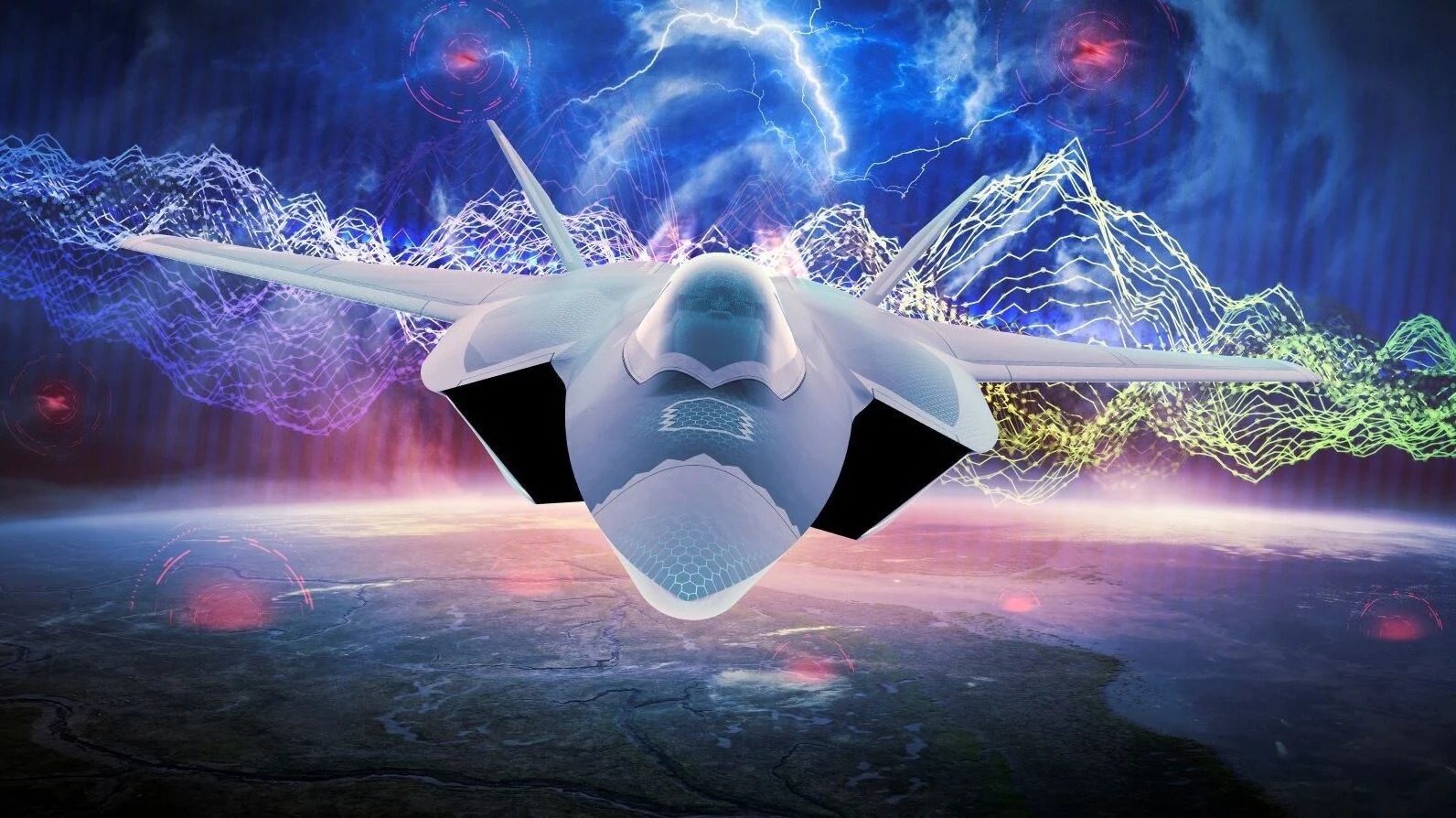In the race to develop a sixth-generation fighter jet under the Global Combat Air Programme (GCAP), Italy appears poised to take on a junior partner role, with Japan and the UK taking the lion’s share of stakes in the ambitious project.
Russia To Welcome F-16 Fighters With 300-Km Ranged R-37M Missiles Now Loaded On Su-30 SM2 Jets
The genesis of this collaborative effort dates back to 2022 when participating nations—Italy, Japan, and the UK—unveiled plans to engineer a sixth-generation fighter jet by 2035.
The envisioned combat air system will consist of a main fighter aircraft complemented by unmanned “adjuncts,” such as drones, alongside advanced sensors and interconnected data systems powered by artificial intelligence and cloud architecture.
Japan, a country constrained by constitutional obligations to peace, views involvement in such a security collaboration as providing a strategic edge beyond its customary alliances. This allows for autonomous procurement of defense assets while expanding its international influence.
Earlier reports suggest a proposed ownership split of 4:4:2, favoring Japan and the UK, which could potentially diminish Italy’s decision-making power while also reducing its financial burden within the GCAP framework.

However, Roberto Cingolani, CEO of Italian defense giant Leonardo, desires an equitable partnership among the involved nations.
Speaking to Nikkei Asia at Leonardo’s headquarters in Rome, Cingolani advocated for an equal investment ratio and workload distribution, proposing a one-third, one-third, one-third scheme.
Cingolani noted the importance of technological prowess and collaborative innovation in shaping the project’s trajectory. He envisages the development of multiple adjunct platforms tailored to the specific needs of each armed force, underscoring the necessity for shared responsibilities and equitable distribution of developmental duties among the partners.
The formation of a joint venture in the UK, involving Mitsubishi Heavy Industries from Japan and BAE Systems from the UK alongside Leonardo, signifies a crucial step towards operationalizing the GCAP.
Yet, the specifics of the workshare remain contingent on a competence assessment scheduled to unfold in the coming months. As discussions progressed, Cingolani emphasized the need for consensus on technical specifications and workshare allocations, laying the groundwork for the development phase slated to commence next year.
The allocation of financial resources will be contingent on each partner’s respective responsibilities within the project framework, fostering transparency and accountability in the collaborative endeavor.
Italy Unhappy With The Project?
Cingolani’s remarks underscore challenges within the multinational initiative aimed at developing a sixth-generation fighter jet. However, this is not the first time he has voiced concerns over transparency, industrial roles, and the feasibility of ambitious timelines.
In March, Cingolani lamented the lack of clarity surrounding the United Kingdom’s plans for the development and delivery of new technologies associated with the future fighter.
He highlighted the absence of tangible capabilities shared by the UK and emphasized the need for a comprehensive understanding of the roles of industry partners, which he argued had not been adequately defined in the competence assessment.
During the latest interview with Nikkei, Cingolani highlighted the significance of the supply chain structure, stating that it will play a pivotal role in fostering the growth of each partner’s domestic defense manufacturing sector.
He pointed out that industrial factors should take precedence over political concerns when determining the shape of the supply chain. Experts have previously warned that the GCAP risks being hampered by unrealistic cost and investment estimates.

UK lawmakers have touted the Global Combat Air Programme (GCAP) as a paradigm-shifter, claiming it can be delivered in half the time and cost of previous efforts.
However, experts doubt this assertion, citing the need for GCAP to meet advanced stealth and survivability requirements. They question whether such capabilities can be achieved at significantly reduced costs compared to past programs like the Typhoon.
Moreover, with a tight schedule looming, including plans for a flying demonstrator by 2027 and system deployment by 2035, Cingolani acknowledged the ambitious timeline while affirming the commitment to meet project milestones.
Cingolani also underscored the need for concerted efforts to meet the deadlines, hinting at potential delays stemming from information-sharing issues. He suggested that increased funding and seamless project governance among the participating countries could expedite progress.
He suggested that involving additional partners in the future could help distribute the financial burden, estimated to be in the tens of billions of dollars, while also expanding the export market. Previous reports indicated interest from countries such as Saudi Arabia and Germany.
Japan has already announced its decision to permit the export of GCAP fighter jets following an extended period of parliamentary deliberation. Cingolani lauded Japan’s evolving stance on defense matters and expressed appreciation for the constructive dialogues taking place within democratic frameworks.
- Contact the author at ashishmichel(at)gmail.com
- Follow EurAsian Times on Google News




